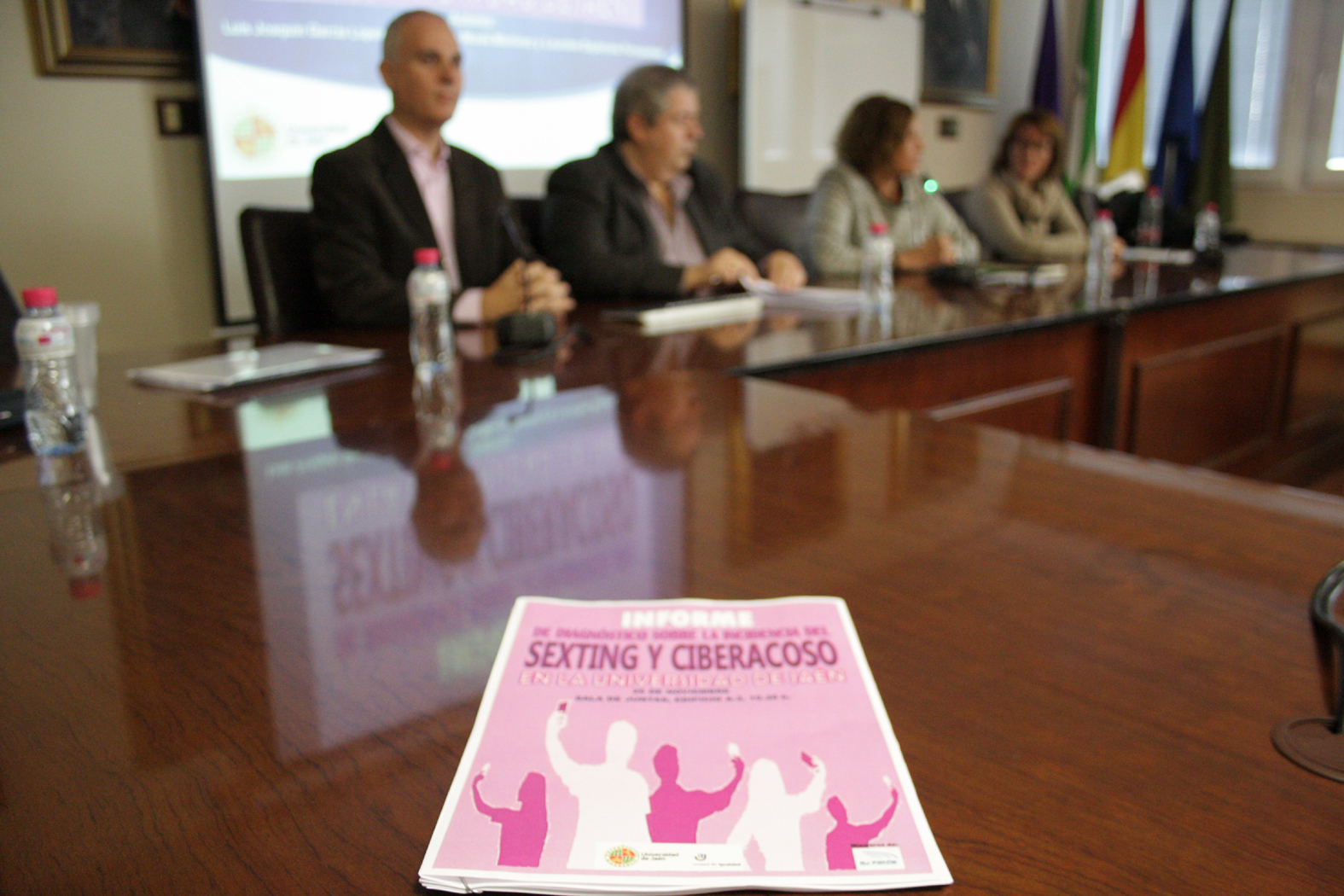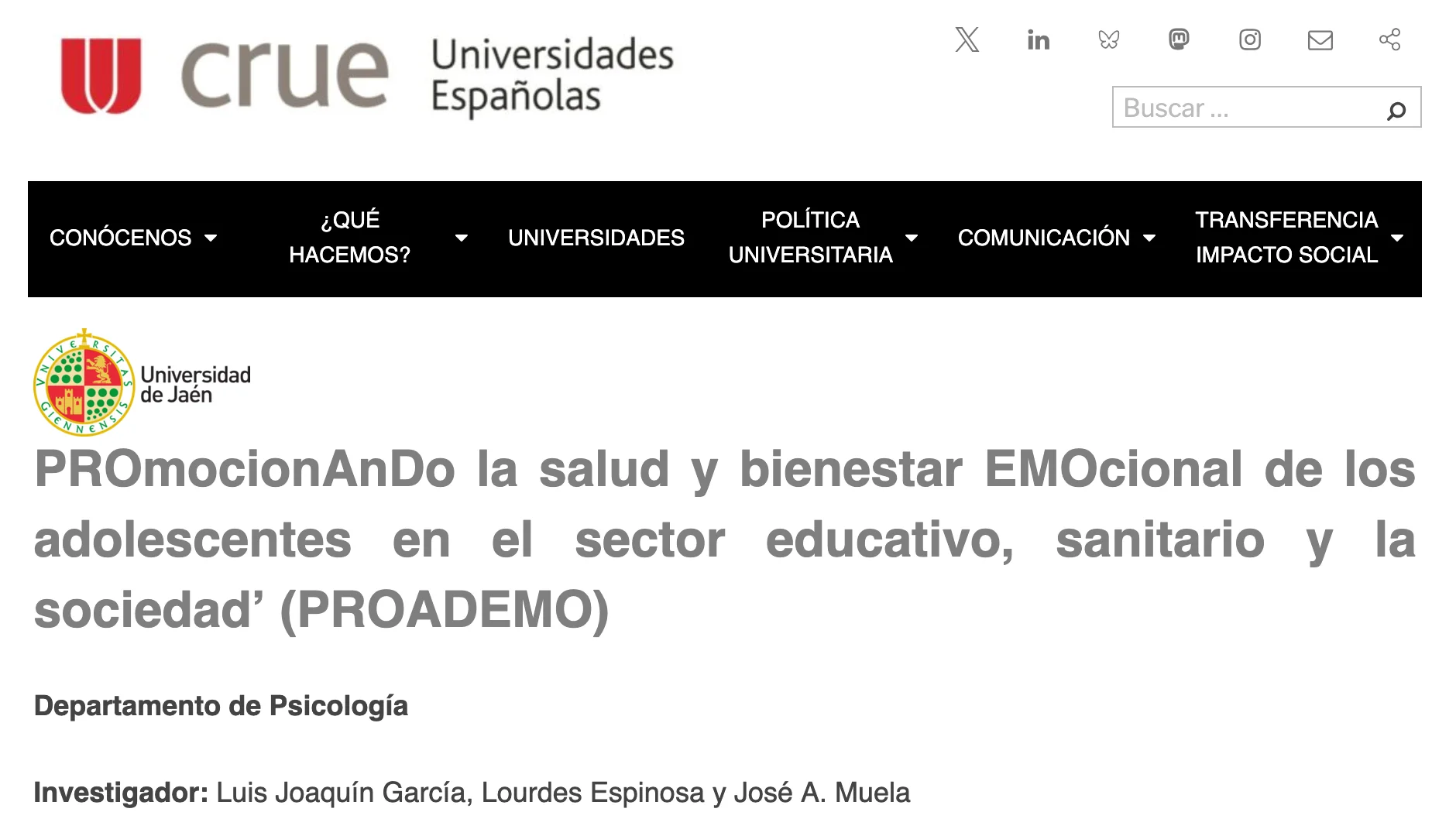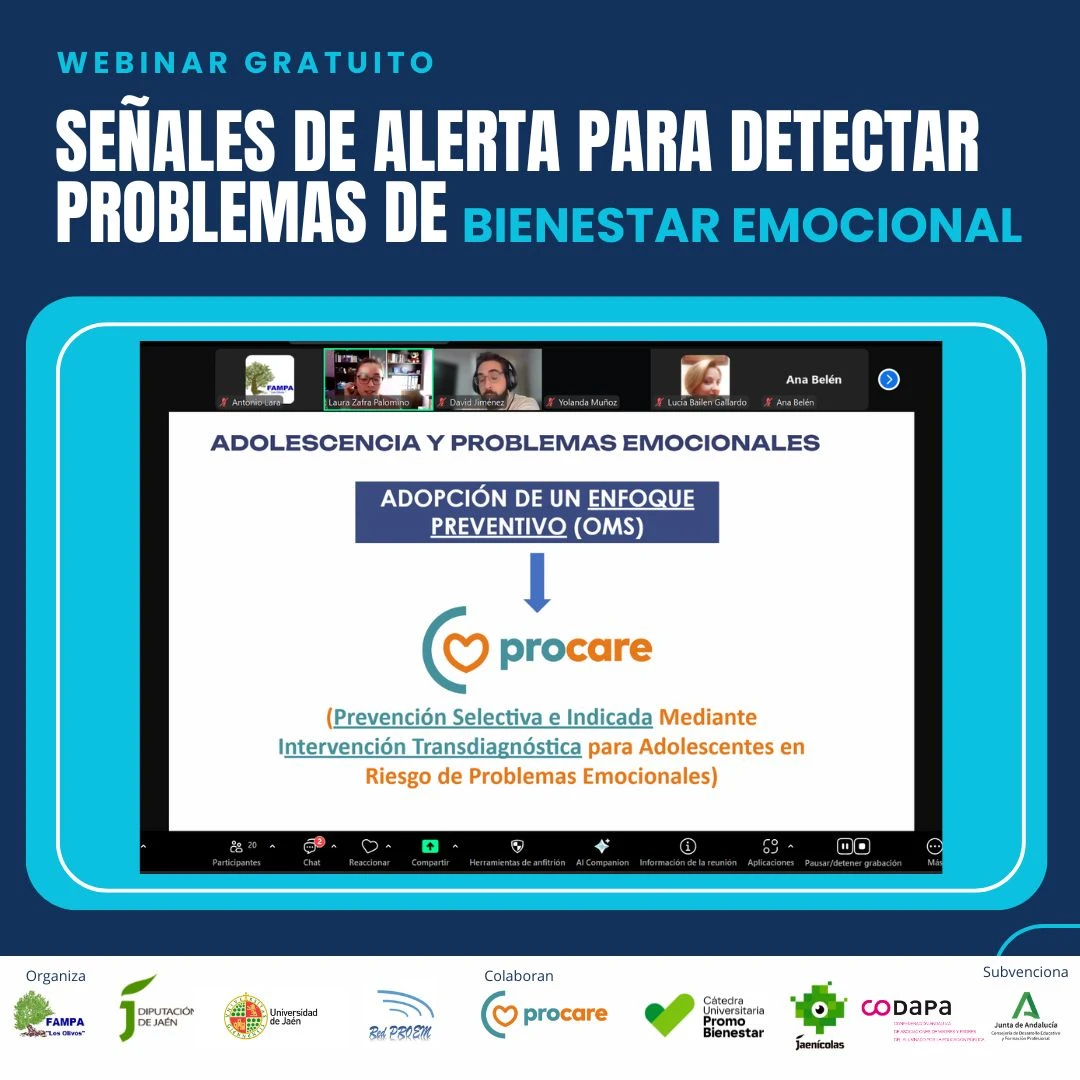According to a Diagnosis Report recently drawn up, 66% of students have experienced cybervictimization at some point over the past year, while 36% have engaged in sexting and 2.5% acknowledge having been forced or coerced into sexting within this same time period
4/12/2018.- Researchers of the group ‘Psychological Assessment and Intervention’ attached to the University of Jaén (UJA), led by José Antonio Muela, and members of the Network for the PROmotion of mental health and EMotional well-being in young people (PROEM network), whose PI is Luis Joaquín García, warn of the high incidence of cyberbullying – two out of every three students – and of the existence of sexting behaviours – one out of every three students –among those at the University of Jaén’s two campuses.
These findings were drawn from the diagnosis report compiled during the 2017/2018 academic year at the request of the UJA’s Unidad de Igualdad (Department for Equality) aimed at examining the prevalence of cyberbullying behaviours, sexting (sending of personal sexual content which may be consented or forced), and couple cyberbullying among young people studying at the University of Jaén, and analyzing existing gender-specific differences.
The director of the UJA Department for Equality, Matilde Peinado, presented the data from the report carried out alongside the research study’s three authors, Luis Joaquín García, José Antonio Muela and Lourdes Espinosa, member of the UJA research group and the PROEM network. The study sample comprised close to 1,000 students aged between 18 and 25 years, UJA student representatives belonging to this age group.

Following an analysis of the data obtained, the researchers found that two out of every three university students surveyed – 66% – have fallen victim to cyberbullying on at least one occasion over the past year. Considering the total number of UJA students in this age bracket, this points to 7,631 students who may have been cyberbullied at least once over the last year. From these data, it can be extrapolated that 1,641 students – that is, one in seven – “frequently experience cyberbullying”, explains Luis Joaquín García.
Regarding cyber-aggression, a third of the surveyed university students (33.7%) acknowledge having engaged in cyberbullying on at least one occasion over the past year. “Based on the numer of UJA students, this figure indicates that almost 4,000 students have practiced cyberbullying at least once over the past year. And 365 of them may have practiced cyberbullying more than five times in the last year”, José Antonio Muela adds.
As for couple cyberbullying, the data from the report highlight that 36.3% of those surveyed in a dating relationship had experienced cybervictimization-related behaviour within the couple dyad over the last year. “This fact points to 4,200 students potentially having experienced cyberbullying on at least one occasion over the past year. The extrapolated data suggest that 1,276 students often or always experience it”, states Lourdes Espinosa. Along these lines, 27.6% of the university students report having perpetrated online bullying behaviour towards their partner at least once over the past year. “This figure suggests that 3,200 students may have practiced couple cyberbullying at least once over the past year. Of these students, close to 500 may be perpetrators of this behaviour often or always”, the researcher adds.
With regards to sexting, the results show that 36% of the university students surveyed have practiced consented sexting at least once over the past year. And as for forced or coerced sexting, 2.5% of those surveyed acknowledge having experienced it at least once over the past year. “According to these figures, it can be extrapolated that some 4,168 students practice consented sexting and almost 300 students are being forced to send their own pictures, videos and/or messages of a sexual content at some point over the past year, which means that this behaviour is present among the university community. More than 50 of these students, all female, may find themselves often or always coerced into practicing sexting”, highlights Luis Joaquín García. What is more, “forced sexting is related to cybervictimization and online harassment within the couple relationship”, adds José Antonio Muela.
Faced with these types of situations, Matilde Peinado maintains that “the University must lead the way in defending ethical values and social progress as well as in detecting and eradicating all behaviours and actions associated with gender-based violence, and, in general, with violence and harassment in all its manifestations”. From this perspective, the director of the Department for Equality explains that the Vice-rectorate for Students has already received complaints by both male and female students reporting how they feel harassed in the WhatsApp groups set up in the classroom environment. As such, she stresses “the need for active reflection to bring about a cultural, ideological and policy change that puts an end to reproducing behaviours, messages and attitudes which are a breeding ground for gender-based violence via social networking sites”.
As future lines of action, Lourdes Espinosa highlights the importance of training and prevention initiatives on the correct use of ICTs, providing young people with tools that can help them to use social networks responsibly. She also emphasizes the need to develop and implement early detection protocols and evidence-based psychotherapy interventions for addressing these issues administered by healthcare professionals specializing in mental health.
The report can be downloaded from the UJA’s Unidad de Igualdad webpage or by clicking on the available link at www.redproem.es
Informativos RNE: https://www.youtube.com/


